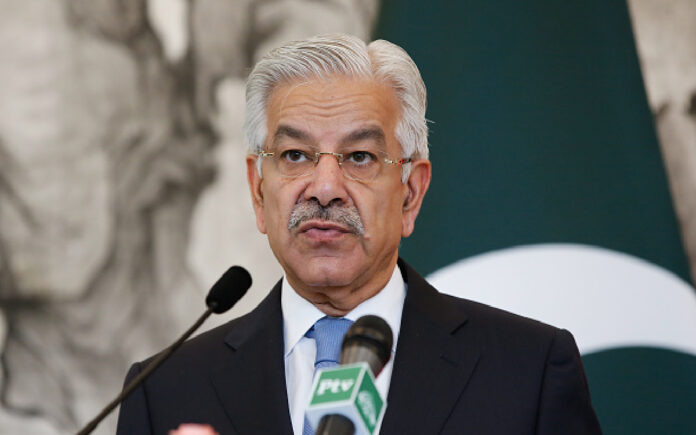Islamabad: Amid escalating tensions and a rapid deterioration of relations between India and Pakistan, Pakistan’s Defence Minister Khawaja Asif has made a chilling declaration: war appears to be the only path left for Islamabad.
In a televised interview with a Pakistani media outlet, Asif stated, “We don’t see any other available means other than this option (war) due to the aggressive actions adopted by India in the last four days. We have tried to de-escalate the situation, but the chances of that seem minimal. We have to pay them back in the same coin.”
Asif’s comments come as border regions reel from continuous artillery, drone, and missile exchanges that have gripped both nations in one of the worst flare-ups since the 1999 Kargil conflict. According to the minister, the possibility of peace appears increasingly remote, though he did not disclose specifics about any planned military operations.
Earlier in the day, Asif stirred controversy online after claiming that the Pakistani military deliberately refrained from intercepting Indian drones, arguing that a defensive response would have compromised their positions. The remark drew sharp criticism and widespread ridicule across social media platforms.
🚨 Pak Def Min Khawaja Asif says no option left other than full blown war
— OsintTV 📺 (@OsintTV) May 9, 2025
News Anchor ; Are we staring at a full blown war ?
Khawaja Asif ; We dont have any other options other than this …. We have to pay them back in the same qui#tes…
Anchor ; So the war is at our door… pic.twitter.com/392XduqUth
Pakistan Refuses to Back Down
Echoing the Defence Minister’s tone, the spokesperson for the Pakistan Armed Forces, Major General Ahmed Sharif Chaudhry, ruled out any possibility of de-escalation during a press interaction on Friday.
“We will not de-escalate — with the damages India did on our side, they should take a hit,” Chaudhry asserted, as quoted by Al Arabiya. “So far we have been protecting ourselves but they will get an answer in our own timing.”
His statement followed Pakistan’s overnight attempt to strike multiple military targets across Jammu and Kashmir, Punjab, Rajasthan, and Gujarat. India’s defence forces, however, successfully neutralised most of the incoming drones, preventing significant infrastructure damage.
India’s Counteroffensive
India responded swiftly to Pakistan’s offensive. Military officials reported that 300 to 400 Turkish-made SONGAR drones were launched by Pakistan across 36 locations spanning from Leh to Sir Creek. The Indian military deployed both kinetic and electronic warfare capabilities to shoot down the majority of these aerial threats.
In retaliation, India struck strategic targets, including a Pakistani air defence system in Lahore, marking a significant escalation. These developments follow India’s earlier pre-emptive strikes under Operation Sindoor, which was launched on May 7. The operation targeted nine terror training camps and launchpads in Pakistan and Pakistan-occupied Kashmir (PoK).
Also Read | Blasts Shake Indian Kashmir and Amritsar as India-Pakistan Conflict Intensifies
According to Indian intelligence sources, these strikes were carried out in response to the April 22 massacre in Kashmir’s Pahalgam, where 26 civilians were killed. The Resistance Front (TRF), a proxy of Lashkar-e-Taiba (LeT), claimed responsibility for the attack.
With diplomacy failing and military engagements intensifying on both sides, the region remains on high alert. Civilian populations along the border have begun evacuations, and security agencies across India and Pakistan are bracing for further escalations.



